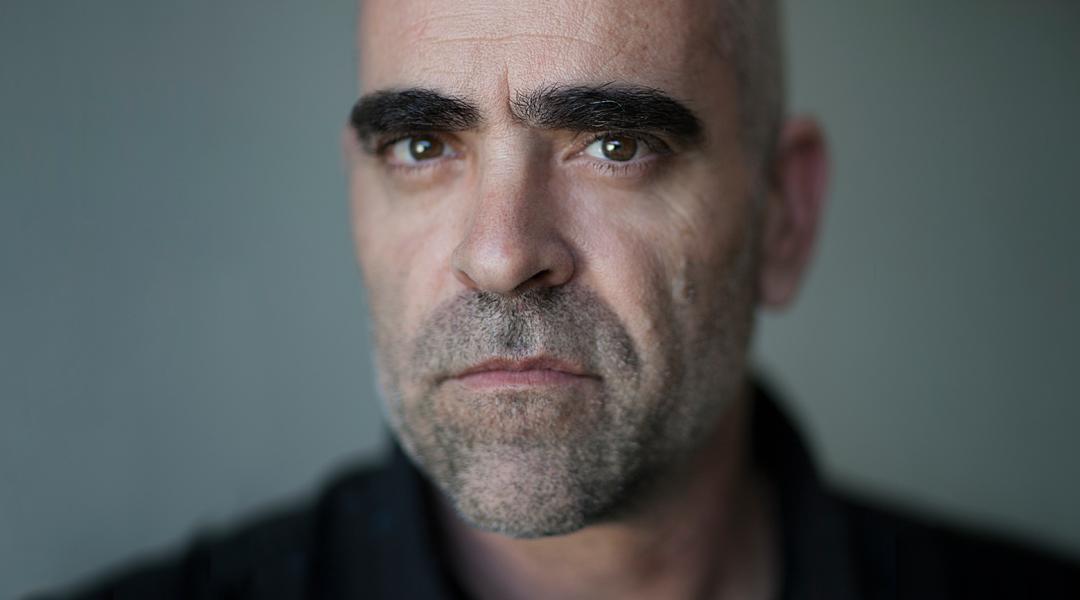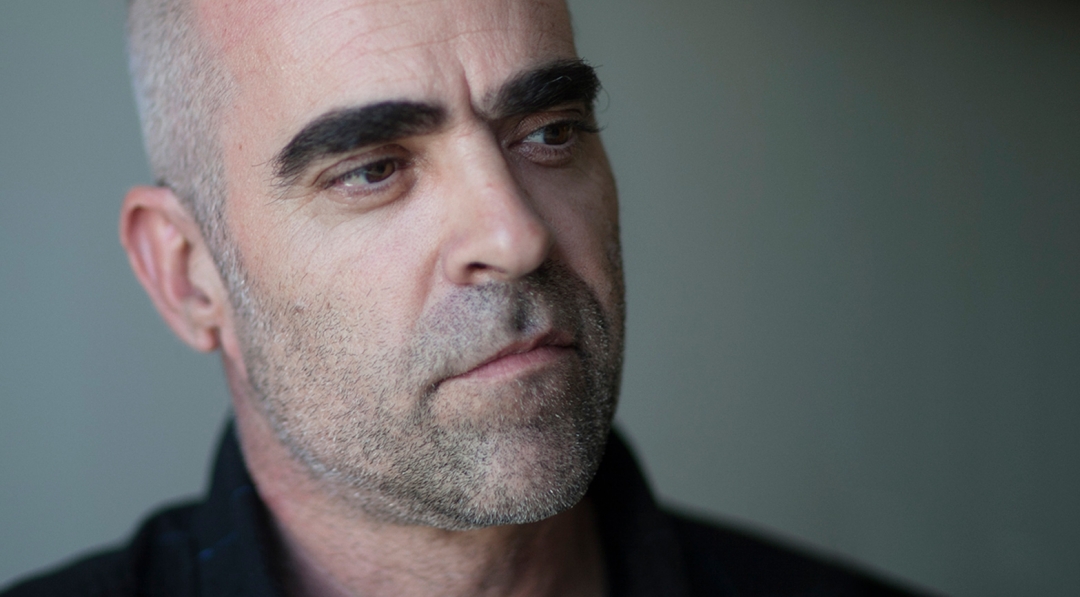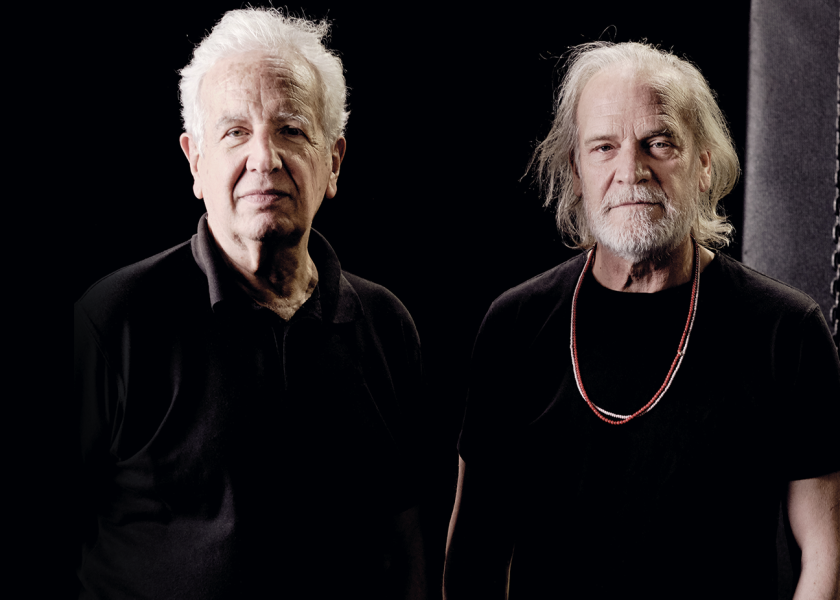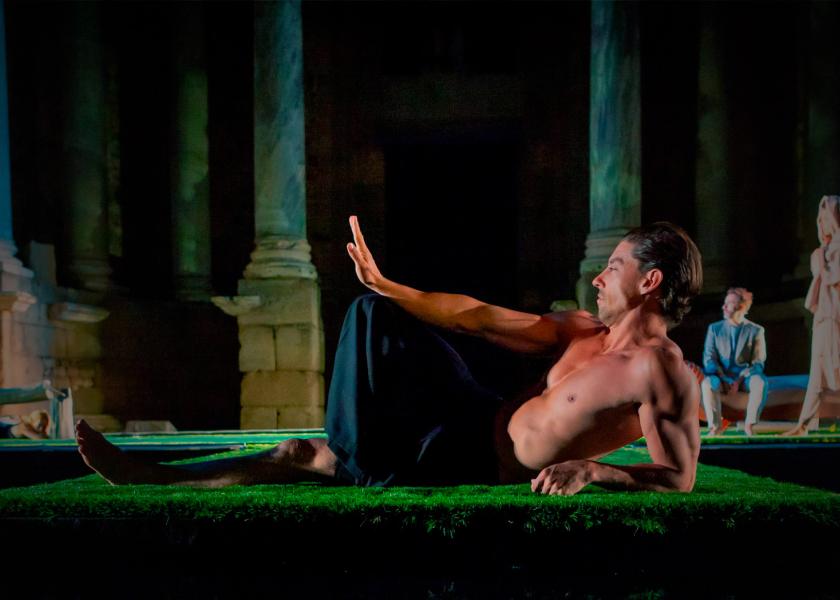Luis Tosar
The Chameleon Is Back

This August 30th, Luis Tosar premieres 'Quien a hierro mata' (Eye for an Eye), the latest film by Paco Plaza, featuring Tosar as a complex character—which is, of course, his trademark—immersed in a spiral of vengeance against drug dealers in a drug-ridden Galicia. Before the end of this year, he can also be seen in 'Intemperie', the new Benito Zambrano film, and in the upcoming 'Ventajas de viajar en tren' (Advantages of Travelling by Train), an adaptation of the novel by Antonio Orejudo. Tosar is back.
With over 20 years of experience, over 30 feature films and three Goya Awards, the career of the most renowned Galician actor of his generation is built on a string of unforgettable roles, from Cell 211's Malamadre to his subtle bad guy in Miami Vice, to name just two contrasting parts. While Luis Tosar (Cospeito, Lugo, 1971) claims he is not a method actor, there is something almost methodical in the way his characters seemingly effortlessly dominate the scene.
Although he has also done comedy and more lighthearted films, it is in the heavier ones, with complex or dramatic plot lines, where Tosar—method or not—really feels in his element. As an actor with his level of commitment, perfectionism, and intensity, how stressful is it to immerse himself in those stories full of tension and drama? “You end up a little more tired than you normally would. Years ago, when I was younger, the sensation was more intense—somehow you’re more engaged. As time goes by and you become more experienced, you try to focus your energy and detach yourself as much as possible,” he says.
Is Luis Tosar the actor he wanted to become? “No, I don’t think so, not even close. I’d love to be so much better,” he says with a smile. And he continues: “Over time, you become more effective, more direct, and you waste less time on things that you know don’t work.” In Quien a hierro mata, Tosar plays Mario, a father-to-be geriatric social worker who establishes a relationship with the patriarch of a clan of drug traffickers—who is interned in the centre—and his two children, now in charge of the business. The plot gets complicated, as do the decisions the main character has to make.
“It was a tough story for me. I was incredibly affected by it. I didn’t want to do it,” says the actor. “I’d just become a dad and I was dreading to go on that journey, because I was in a place that was the complete opposite: a place of light, joy, permanent discovery. But the producer, Emma Lustres, convinced me.” Addiction, death, the presence of a common enemy—drugs—are constant factors in the ninth feature film by Paco Plaza (Verónica, [Rec], Romasanta). Real problems, set in a certain era in the region of Galicia the actor was very much affected by, “much more than I would have liked. You don’t start to realise the consequences until a long time has passed.”

Tosar stars in Benito Zambrano's next film, 'Intemperie', which premieres on November 22. © Kela Coto
“We’re a strange mix of animal instinct and privileged intelligence”
Quien a hierro mata is a hostile tale of revenge and personal transformation, but it is also a way to show a society at a given time. Does Luis Tosar believe that cinema helps in that aspect? “Yes. But I think it is hard for us to acknowledge the things that happen, we even tend to deny them. We live in a world where, at least in appearance, everything has to go well all the time. When it’s in the past, after some time, you can analyse the situation and say ‘this is what happened’.”
While the actor says that when he interprets, he does not put his own method into practice, he does admit he does things his own way. Thrillers, fantasy, drama, action, the psychedelic narrative of Ventajas de viajar en tren; Luis Tosar hops from one film genre to another in a way that seems easy. Throughout his career—perhaps because of the charisma that characterises him—he has known more high than lows, but his relationship with critics has not always been as smooth as it is today. Carlos Boyero, perhaps the best known critic in Spain and whom the actor calls “a whole genre in itself,” wrote: “And there’s Tosar again with his inner storm.”
Nothing could be further from the truth. The actor’s personal life has become a lot less stormy in recent years: he has two children with actress Luisa Mayol, and he feels this experience has made him change the way he lives and how approaches his profession. “It’s like turning on a whole other screen. I became a father quite late and having children at a certain age makes you reinterpret the world. Seeing it in a creature that is forming is wonderful. You’re witnessing a human being developing, functioning with very primitive, and sometimes very sophisticated codes. We’re a strange mix of animal instinct and privileged intelligence.”



